BY LINCOLN ANDERSON | So far, the rollout of the pre-rolls has all been happening in Downtown Manhattan.
There are only two legal weed shops in the entire state of New York and they’re both in the Village area. Housing Works opened a pot dispensary at the end of December at Broadway near Astor Place as the first nonprofit organization to get a license. A month later, on Jan. 24, Smacked Village opened on Bleecker Street, just west of LaGuardia Place, as the first reefer retailer with a justice-involved individual as its licensee.
The day before Smacked’s opening, its operator, Roland Conner, along with members of the Office of Cannabis Management, the New York State Dormitory Authority and the special social-equity investment fund that is supporting the stores and Councilmember Christopher Marte gathered at Smacked to celebrate the occasion and also to explain why it matters.
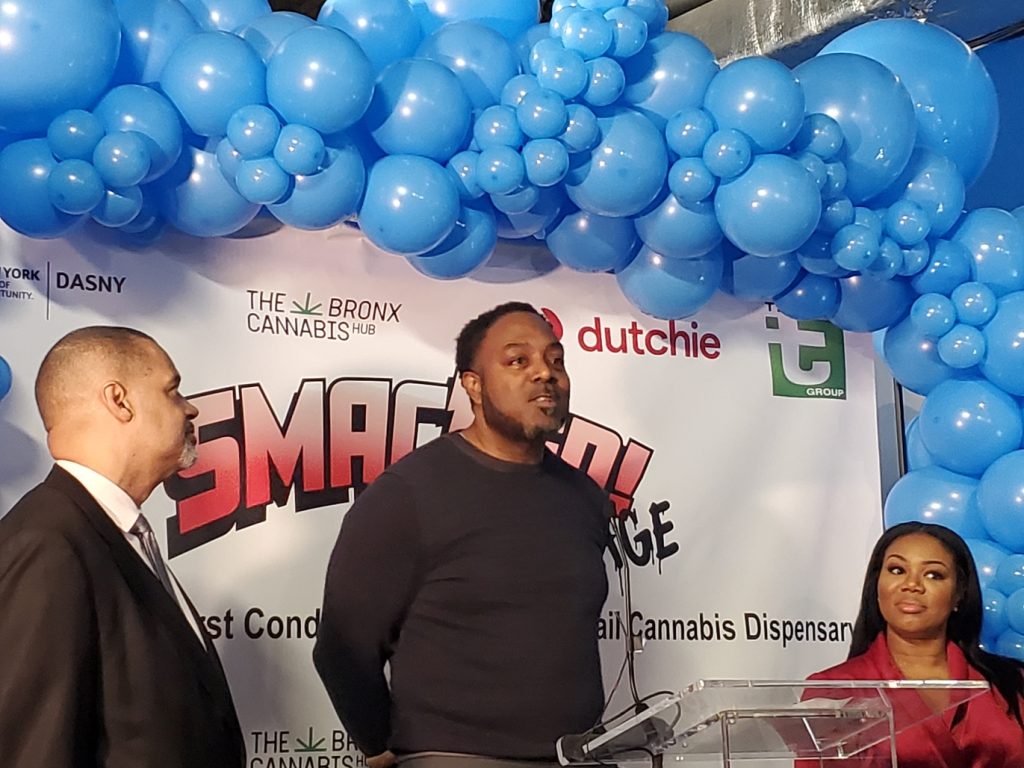
Governor Hochul was expected to attend but didn’t make it. In a
statement, she said, “This dispensary is the latest example of our efforts to build the most equitable and inclusive cannabis industry in the nation. As we continue to work toward righting wrongs of the past, I look forward to new dispensaries — owned by those most impacted by the overpolicing of cannabis prohibition — opening soon.”
In short, while the hippies had “flower power,” under New York State’s legal pot program the new mantra is “flower empowers.” Specifically, the Marihuana Regulation and Taxation Act of 2021 set a goal of awarding 50 percent of legal weed licenses to social and economic equity applicants.
The opening of Smacked helps advance New York’s goals of equity in cannabis licensing, which prioritizes providing licenses to people with a cannabis conviction or a close relative of someone with one. In Conner’s case, he did some time decades ago after being arrested for possession in a Far Rockaway public-housing development.
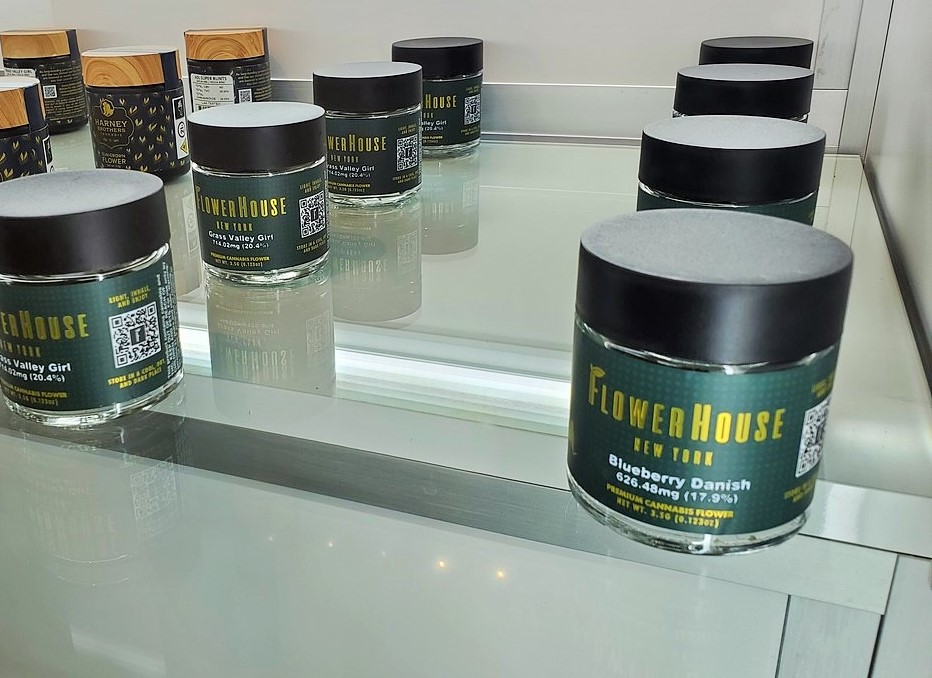
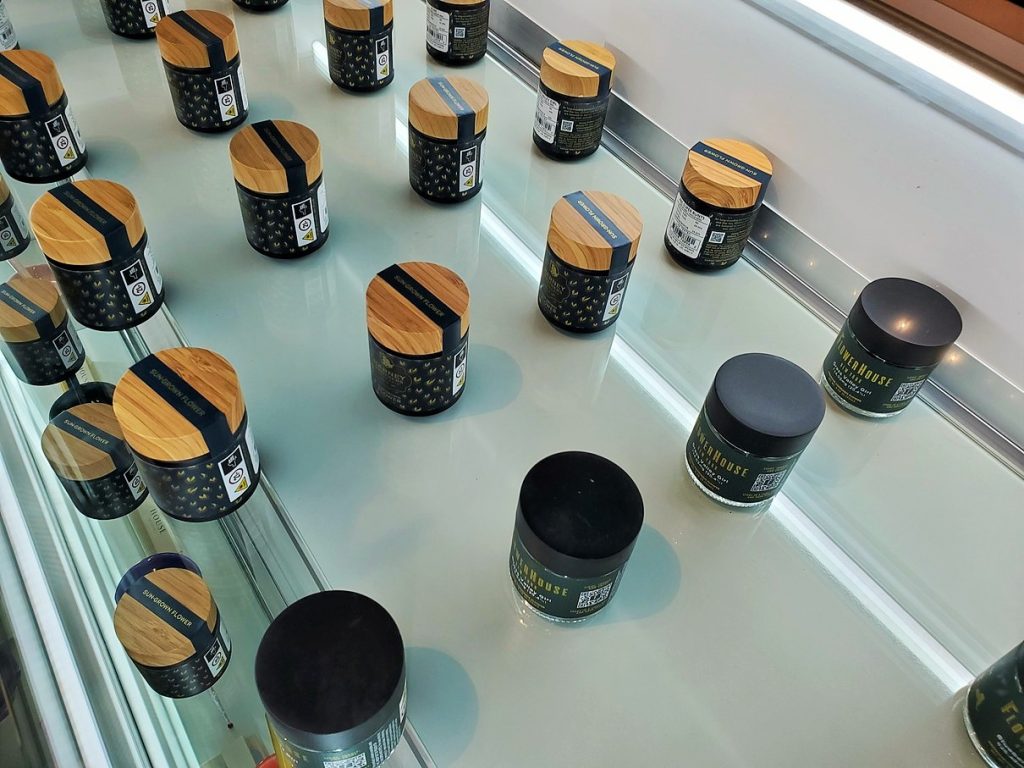
He previously owned and operated property management businesses in New York City for 15 years. He currently manages a transitional housing facility for two dozen men in the Bronx and told The Village Sun that helping the homeless will always remain his major calling.
Operating Smacked with him are his wife, Patricia, and 25-year-old son, Darius.
“I am so excited to become a part of history as the first individual to open a legal cannabis dispensary in New York City,” Conner said. “Given my experience with cannabis, I never could have imagined that I would be opening a store like this. I’m grateful for the opportunity to open a business with my son and wife at my side and build generational wealth, working together, right here in New York. But this is not just about me and my family. This is about everyone who was harmed by the draconian drug laws of the past. New York’s commitment to righting those wrongs through the law is inspiring. I am proof of that commitment because I’m standing here today.”
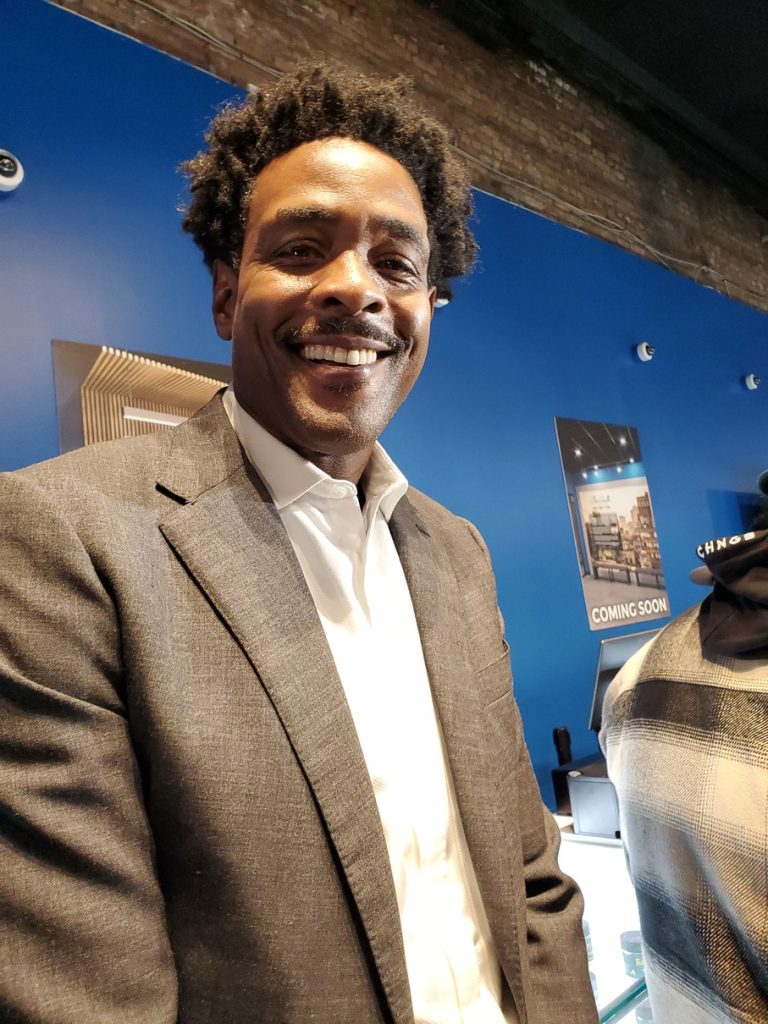
It was actually a “soft opening,” since the store reportedly will close on Feb. 20 for some final construction work. The initial opening was intended to help generate some early capital for the store.
The location, at 144 Bleecker St., is part of the program sponsored by the New York Social Equity Cannabis Investment Fund, which is working with the Social Equity Servicing Corporation, a subsidiary of the Dormitory Authority, to support the acquisition, design, construction and outfitting of locations for cannabis dispensaries to be operated by licensees. Authorized by Hochul and the state Legislature, the fund is a public-private limited partnership formed to position social-equity entrepreneurs to succeed in New York’s new adult-use cannabis industry. Managed by Social Equity Impact Ventures, the fund is intended to help mom-and-pop, justice-involved licensees meet the costs of establishing adult-use cannabis retail dispensaries, including identifying and leasing suitable retail locations.
The fund is committed to spending up to around $1 million per space on the outfitting of the stores. The fund is supported by up to $50 million in licensing fees and revenue from the adult-use cannabis industry and up to $150 million from the private sector that will be raised by the fund manager.
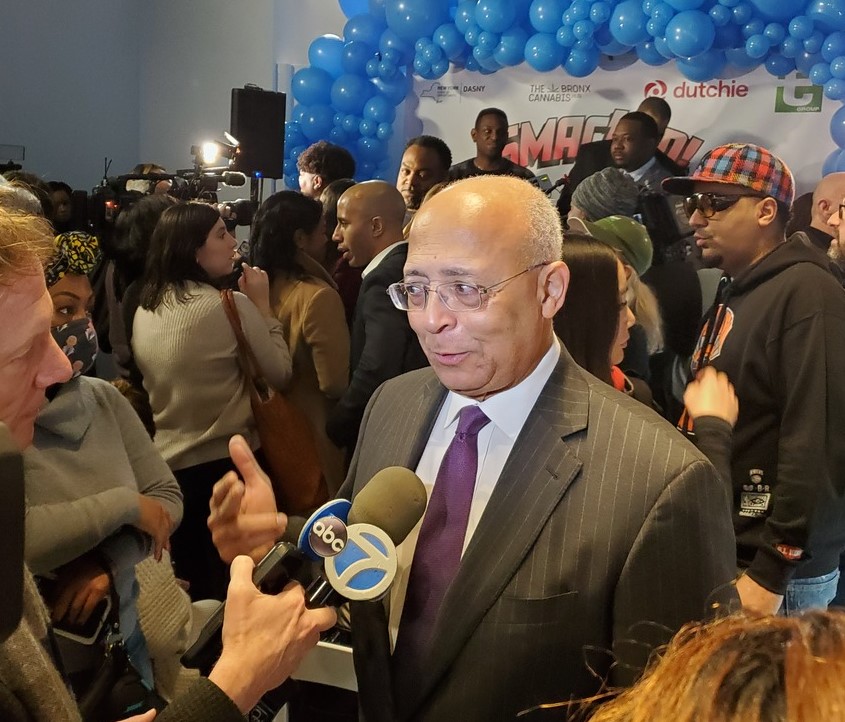
Social Equity Impact Ventures includes former NBA player Chris Webber and business partner Lavetta Willis, with Bill Thompson, the city’s former comptroller, as one of its leaders.
“There could not be a better man, a better face, for this program,” Webber said, glowingly, of Conner.
(Asked later if he smoked during his playing career, Webber said no, except for when he was recovering from an injury.)
Thompson enthusiastically touted the social-equity empowerment of the program, noting, “We’re usually at the back. But we’re at the front now. This is about generating generational wealth.”
Mar Fitzgerald, the chairperson of the Community Board 2 Cannabis Licensing Committee, received big applause at the opening for her work holding informational meetings about the pot dispensaries and the overall program. Two other dispensaries are slated to possibly open in the area, one by the Doe Fund at E. 13th Street and Broadway, and the other by CAMP Life, perhaps in the Meatpacking District. Fitzgerald did not have immediate updates on those applications.
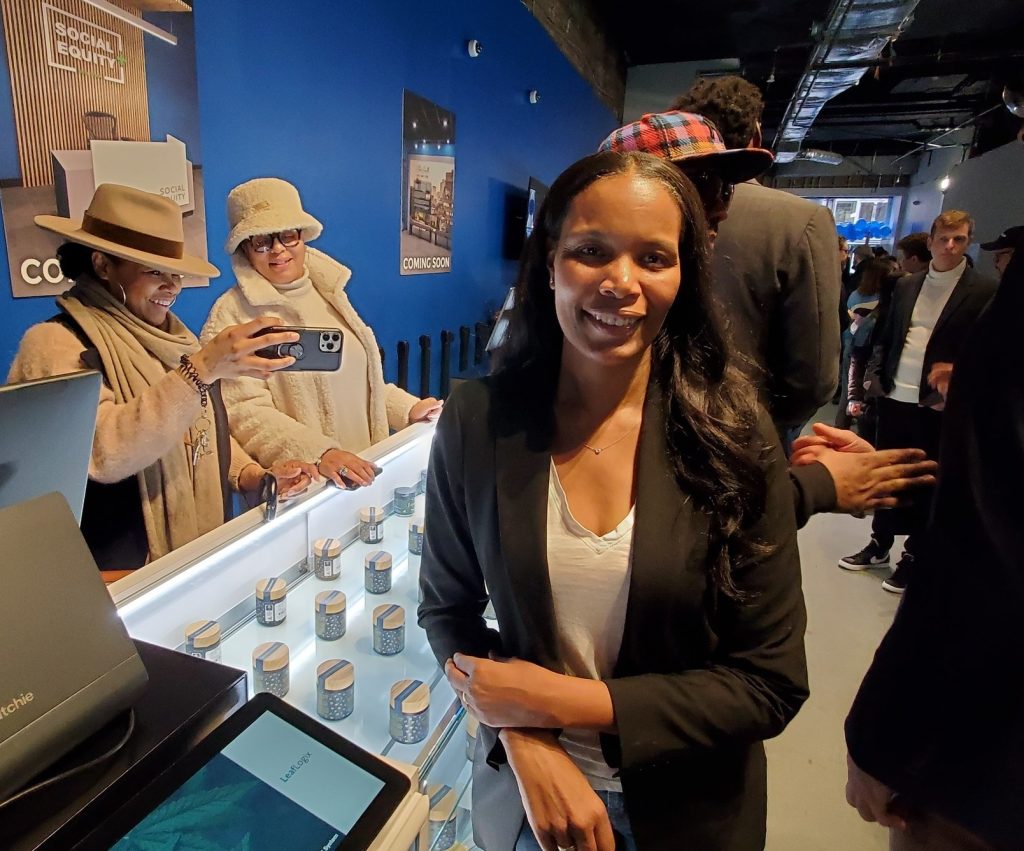
As for why, so far, the stores have been opening in the Village and nowhere else, she said she personally didn’t know why, but that it’s understandable given that the area is a major destination for dining, nightlife and retail.
“I think it’s appropriate that it’s in the Village,” Fitzgerald said of the new legal marijuana merchant. “Downtown is where you want to be to shop, eat, have a drink, have a good time. It makes sense.”
At the same time, she said, the stores are highly regulated by the state’s new marijuana law.
“This is a retail site,” she stressed. “It’s not a bar or restaurant. This is not a hangout, not a party.”
Conner later assured The Village Sun that only customers age 21 and over would be allowed to make purchases, noting, “We will be checking I.D.’s and following O.C.M. guidelines.”
Another proposed dispensary, however, on E. Third Street, has been facing fierce community pushback since neighbors don’t feel the site, near the Third Street Men’s Shelter, run by Project Renewal, is appropriate. Two new dispensaries are slated for Community Board 5, which covers a slice of Manhattan running north of Union Square to Central Park South, Fitzgerald noted.
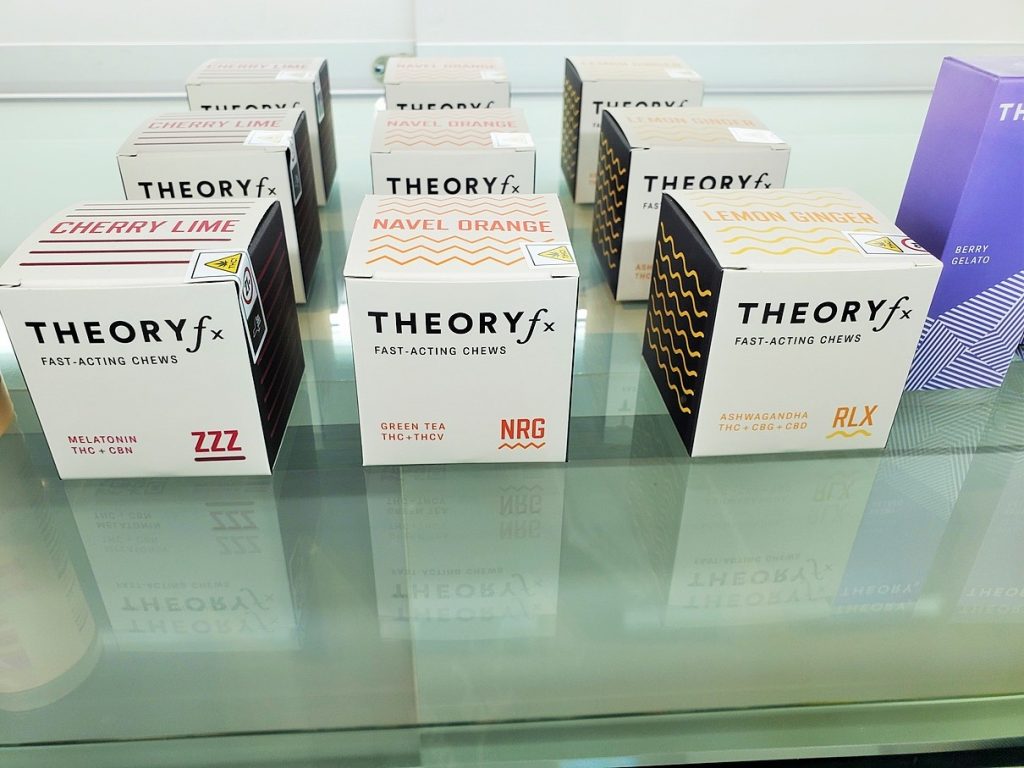
As for what was at the Bleecker location before, Fitzgerald gave the following rundown: “In 1644 the land the store sits on was owned by a free Black man named Clyn Manuel. In the 1830s it was the Italian restaurant Mori, which closed in 1937. It was occupied by the Free World House, a political organization, until 1946. Then it was another restaurant called Montparnasse. It was the Bleecker Street Cinema from the ’60s until 1991, then Kim’s Underground video store, then Elbow Room. In 1993 it was divided into two stores, New University Pen & Stationery (which is still there next to the dispensary) and a Duane Reade. I think the drug store closed around 2016 and that space was vacant until Smacked Village opened.”
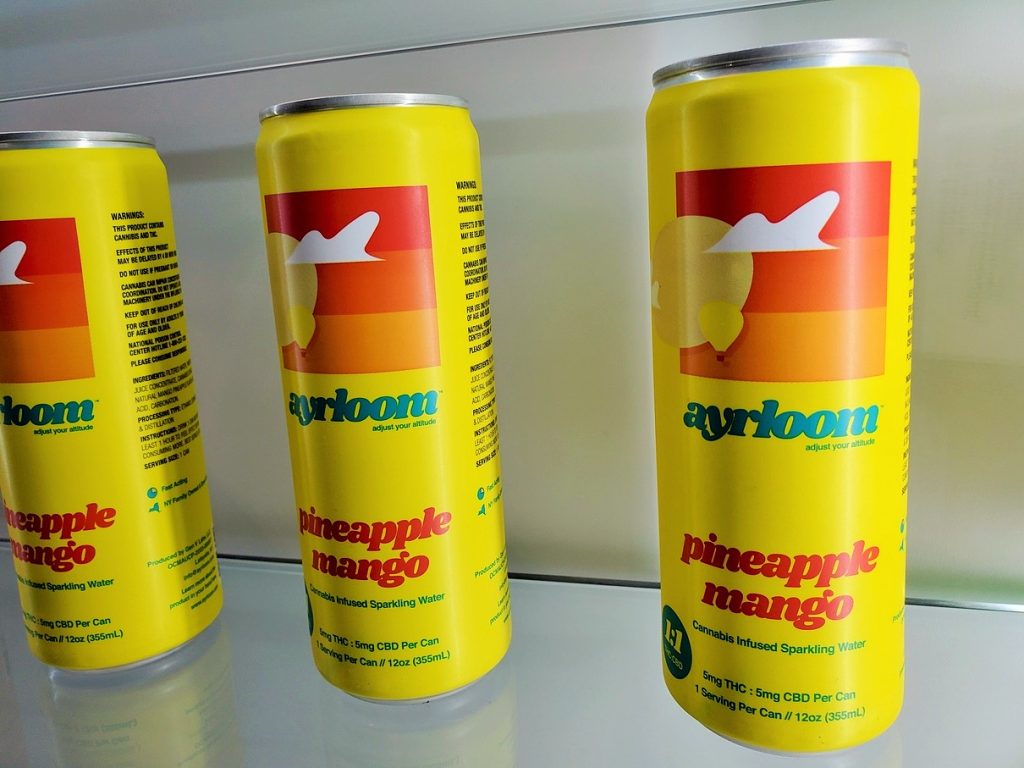
Although the dispensaries are legally prohibited from opening within 500 feet of a school, the fact that a new public school might conceivably be built someday down the road at the site of the nearby Morton Williams supermarket, which is only 150 feet from Smacked, does not immediately appear to be an issue, according to O.C.M. officials. John Kagia, O.C.M. director of policy, said it was an interesting question, but that the state’s marijuana legalization law was basically modeled on the laws governing liquor licenses.
Asked the same question, former Comptroller Thompson said that, right now, it’s moot, but granted that if the school ever gets built at the market site, “Then that’s a different conversation.”
McDaniel added, “The school’s a hypothetical right now, but we only deal with what’s right before us.” Asked what might happen if a school did open nearby, he responded, “I don’t know.”
Some locals chatting about the new store on Facebook were not crazy about its name, Smacked, which means “high.” They wondered, for example, if a liquor store should similarly be called something like Sloshed or Blitzed. But that’s the name.
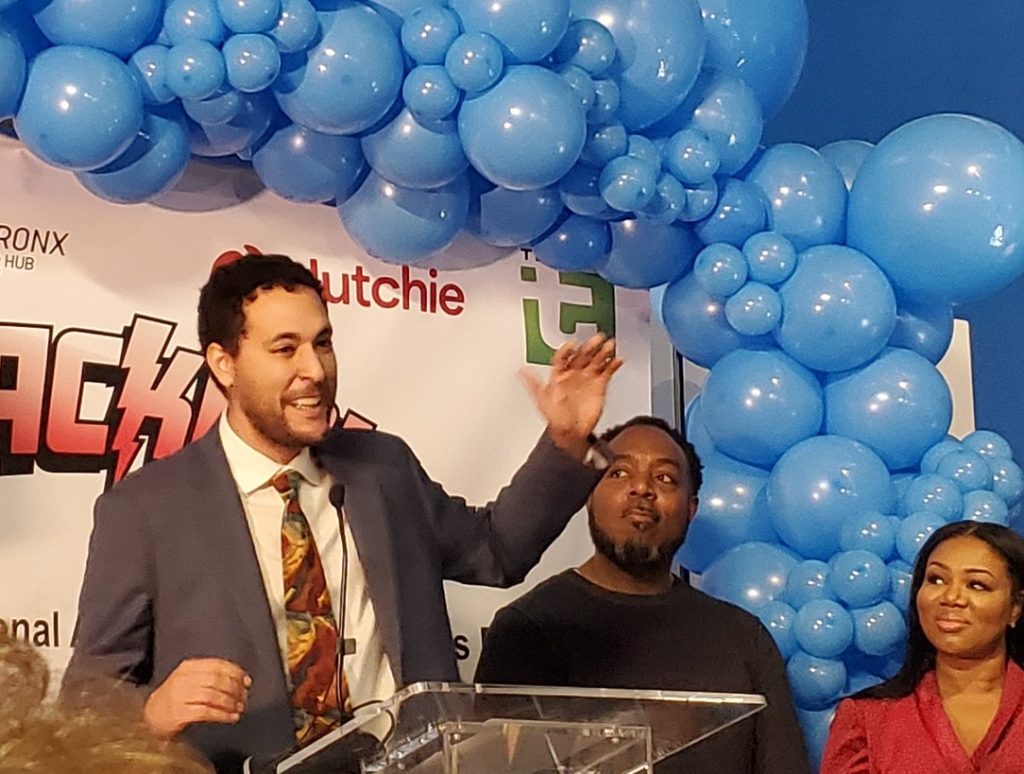
In emotional remarks at the dedication event, Councilmember Marte said his own close family members were impacted by the justice system and that a friend of his was fatally shot, all in connection with drugs.
“For me, this is really personal,” he said. “My parents told me to turn away from the drug dealers. “But when the person that was the dealer is your brother…when your cousin goes to jail… .
“There’s going to be kids that look like me walking down this block,” Marte said. “There’s going to be opportunity here. It took a Village — Smacked Village — to make this happen. Whenever you try to do social justice in a predominantly white community, we could have protesters outside if it isn’t done right,” he noted.
In a shout-out to Fitzgerald of C.B. 2, the councilmember said, “She was the one on the ground making sure when it opens its doors, it’s welcome, it’s loved.”
The day the officials descended on Smacked for the media announcement, one merchant said he was happy it was his next-door neighbor. Akmal Ali, the owner of University Pen & Stationery, said he had high hopes for more customers.
“I hope it will bring me some business. A lot of artists doing that,” he said of consuming cannabis. “So, if they have any money left over afterward, they can come in for art supplies.”

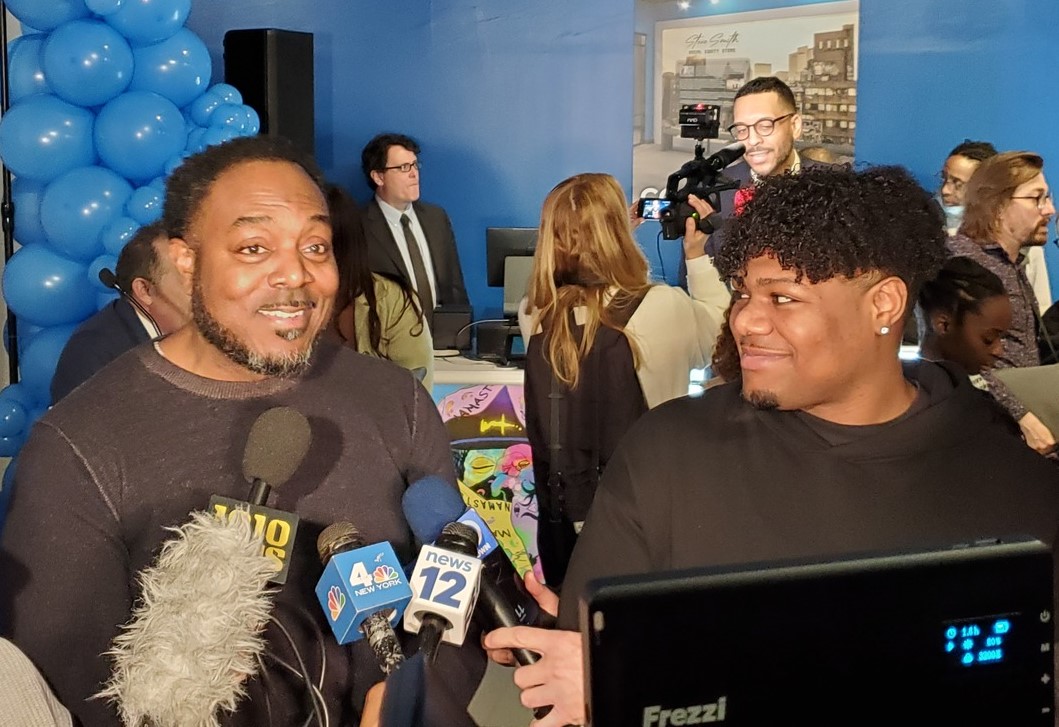
I’m not wild about the name. “Smack(ed)” implies heroin!
First, how does one take seriously a law that still spells it “marihuana” – the choice of the anti-cannabis zealots who penned the original anti-pot laws back in the 1930s?
Second, if you want to talk “equity,” I am going to continue to spend my money with the brave pot dealers who for the past 50 years and more risked their freedom to sell us the weed at fair prices and without taxation. This new breed are marketing it like it is a Madison Avenue commodity.
If it weren’t for the underground dealers, pot would still be illegal. Give them your money. They earned it.
Gosh.
The neighborhood gets 2 new pot stores – but NYU and the City won’t ensure that residents have an essential grocery store, something that was promised in earlier agreements relating to NYU development.
The race to the bottom